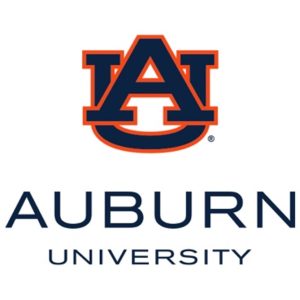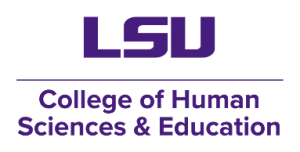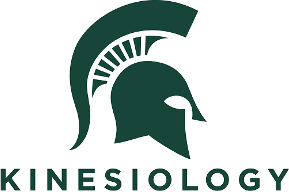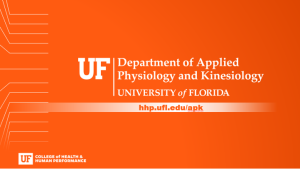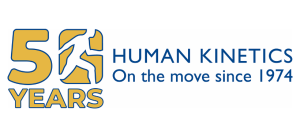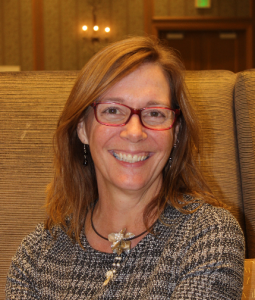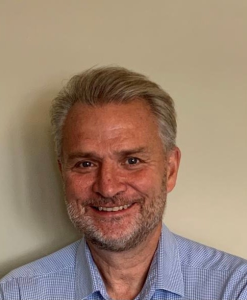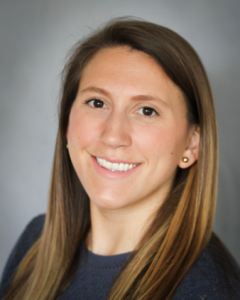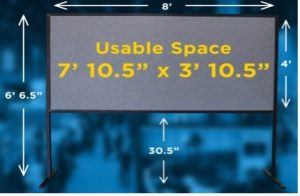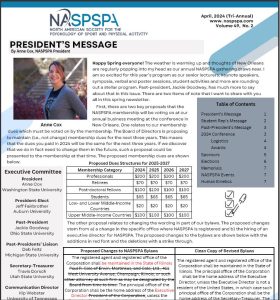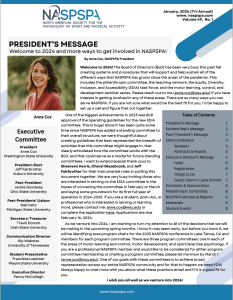Information about future conference sites is available here.
Parties interested in sponsoring the conference or exhibiting can contact naspspaed@gmail.com.
2024 Conference
New Orleans, Louisiana
June 5 – June 8
Abstracts open December and close January 22
Things to do in New Orleans
- Garden District Tour: 10am
- The Local’s Guide to the French Quarter Tour: 10am
- Pestilence, Pandemic & Plague Tour: 1pm
- Kid-friendly Ghost Tour: 5pm
- Sinister Criminal Intentions: The Original True Crime Tour: 4pm + 7pm
- Our Favorite Ghosts Tour: 8pm
- Lewd Spirits Pub Crawl and Ghost Tour: 5pm + 8pm
Book with the discount code or find out more information at: https://uniquenola.com/
- Get a 20% discount by using this code NASPSPA24 (Or call directly to book at 504-777-7769)
From the New Orleans Visitors Bureau: https://www.neworleans.com/things-to-do/
Check out these recommendations from Dr. Lanie Dornier, Director of Kinesiology at Tulane University, New Orleans and Native of South Louisiana on things to do while you are visiting New Orleans!
A few additional videos on the History of New Orleans and traveling in our conference city
History of New Orleans French Quarter
America’s French Colony: A History of New Orleans
A special thank you to all our sponsors who have helped make this event possible!
Platinum Sponsors/ Exhibitors
Gold Sponsors
Silver Sponsors
Overall Keynote Speaker
 Dr. Marcio A. Oliveira is the Assistant Vice President at the University of Maryland for Academic Technology and Innovation within the Division of Information Technology and also the Executive Director of the Teaching and Learning Transformation Center within the Division of Academic Affairs. In both of these roles, he fosters effective, engaging, efficient, and equitable teaching and learning by guiding strategic institutional vision, pace, and priorities. His scholarship and teaching focus on cognitive and motor neuroscience and NASPSPA has been his academic home. He is nationally renowned for implementing innovative technology-enhanced pedagogical practices and collaborative learning environments and for encouraging educational innovation and experiential learning, all to foster student success. His talk will focus on the role of AI in academia, specifically looking into the future to examine how AI can support the research mission of universities and faculty
Dr. Marcio A. Oliveira is the Assistant Vice President at the University of Maryland for Academic Technology and Innovation within the Division of Information Technology and also the Executive Director of the Teaching and Learning Transformation Center within the Division of Academic Affairs. In both of these roles, he fosters effective, engaging, efficient, and equitable teaching and learning by guiding strategic institutional vision, pace, and priorities. His scholarship and teaching focus on cognitive and motor neuroscience and NASPSPA has been his academic home. He is nationally renowned for implementing innovative technology-enhanced pedagogical practices and collaborative learning environments and for encouraging educational innovation and experiential learning, all to foster student success. His talk will focus on the role of AI in academia, specifically looking into the future to examine how AI can support the research mission of universities and faculty
Keynote Speakers
Motor Learning & Control
Dr. Rachael Seidler is a Professor in the Departments of Applied Physiology and Kinesiology and Neurology at the University of Florida. Her research focuses on the neural control of movement in health and disease, with a specific focus on motor learning. She uses a range of neuroimaging and neuromodulation techniques coupled with precise measures of movement and cognitive function to determine the neurocognitive underpinnings of motor control. Dr. Seidler has expertise working with a variety of populations including healthy young and older adults, patients with Parkinson’s disease, and NASA astronauts in both basic science and intervention experiments. Her work has been supported by the NIH, the NSF, NASA, the National Space Biomedical Research Institute (NSBRI), and a variety of private foundations. Active work in her lab includes investigation of human brain plasticity with spaceflight and experiments investigating which cognitive processes support skill acquisition and how they map onto underlying neural pathways.
Motor Development
Doctor Marianne Barbu-Roth (MBR), PhD is currently affiliated with the Integrative Neuroscience and Cognitive Center of the CNRS and the University Paris Cité in France where she is the leader of the Perception-Action-Development Team. Dr. Barbu-Roth is a specialist in the field of early motor and locomotor development in human infants. She published several influent papers on the ontogenesis of human locomotion, challenging the idea that humans are born bipeds and neonatal locomotion is just a spinal reflex.
Sport & Exercise Psychology
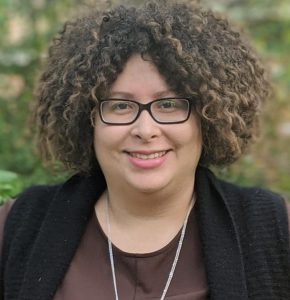 Dr. Laura Reid Marks is a tenure track Assistant Professor of Counseling Psychology at Florida State University (FSU). Marks’ research interests include racial discrimination, alcohol use, and risky sexual behaviors in Black emerging adults. She aims to design mobile health (mHealth) behavioral interventions that are culturally tailored for Black emerging adults to address alcohol-related health disparities. Dr. Marks currently directs the Global Research On Working To ameliorate Health disparities (GROWTH) Lab at FSU. Presently, she is working on developing a culturally tailored mHealth mindfulness intervention for Black college students to reduce stress, and ultimately alcohol use. She was recently selected by the Florida Education Fund to be a McKnight Junior Faculty Fellow for 2021-2022. Dr. Marks graduated with a BS degree in Psychology from the University of Florida in 2005. She also graduated with a MAE and EdS in School Counseling with a dual track in Clinical Mental Health Counseling from the University of Florida in 2010. She completed her PhD in Counseling Psychology at Purdue University, and a predoctoral clinical internship at Arizona State University Counseling Services in 2015. While at Purdue University Dr. Marks was selected for a competitive Ross Doctoral Fellowship and Bilsland Dissertation Fellowship. At FSU, Dr. Marks teaches courses on psychopathology, diversity science, vocational psychology, and counseling theories. She values mentoring and actively mentors undergraduate, master’s, and doctoral students.
Dr. Laura Reid Marks is a tenure track Assistant Professor of Counseling Psychology at Florida State University (FSU). Marks’ research interests include racial discrimination, alcohol use, and risky sexual behaviors in Black emerging adults. She aims to design mobile health (mHealth) behavioral interventions that are culturally tailored for Black emerging adults to address alcohol-related health disparities. Dr. Marks currently directs the Global Research On Working To ameliorate Health disparities (GROWTH) Lab at FSU. Presently, she is working on developing a culturally tailored mHealth mindfulness intervention for Black college students to reduce stress, and ultimately alcohol use. She was recently selected by the Florida Education Fund to be a McKnight Junior Faculty Fellow for 2021-2022. Dr. Marks graduated with a BS degree in Psychology from the University of Florida in 2005. She also graduated with a MAE and EdS in School Counseling with a dual track in Clinical Mental Health Counseling from the University of Florida in 2010. She completed her PhD in Counseling Psychology at Purdue University, and a predoctoral clinical internship at Arizona State University Counseling Services in 2015. While at Purdue University Dr. Marks was selected for a competitive Ross Doctoral Fellowship and Bilsland Dissertation Fellowship. At FSU, Dr. Marks teaches courses on psychopathology, diversity science, vocational psychology, and counseling theories. She values mentoring and actively mentors undergraduate, master’s, and doctoral students.
Senior Lecturers
Sport & Exercise Psychology
Dr. Al Smith is Dean of the Emma Eccles Jones College of Education and Human Services at Utah State University and Professor in the Department of Kinesiology and Health Sciences. He is past president of the American Kinesiology Association and NASPSPA and served on the President’s Council on Sports, Fitness & Nutrition Science Board. He is a Fellow of the National Academy of Kinesiology. His research encompasses the link between sport and physical activity involvement with young people’s psychological and social functioning. He is best known for his research on peer relationships in the physical activity domain (e.g., sport, physical education) and the motivational implications of these relationships for children and adolescents. This work has included sport parenting, athlete burnout, and the promise of physical activity for ameliorating symptoms and impairments of attention-deficit/hyperactivity disorder (ADHD) in young children. His work has been funded by the National Institute of Mental Health and the U.S. Department of Education as well as other agencies such as the International Olympic Committee. He is a long time member of NASPSPA and we look forward to him sharing his wisdom in the Senior Lecturer talk in New Orleans.
Motor Learning & Control
Dr. Mark Williams is a Senior Research Scientist at the Florida Institute of Human and Machine Cognition. His research interests focus on the neural and psychological mechanisms underpinning the acquisition and development of expertise. Professor Williams has published over 270 journal articles in peer-reviewed outlets in numerous fields including exercise and sports science, experimental psychology, neuroscience, and medicine. He is a Fellow of the British Psychological Society (BPS), National Academy of Kinesiology (NAK), British Association of Sport and Exercise Science (BASES), and the European College of Sports Sciences (ECSS). He is a Chartered Psychologist and Scientist and is accredited by BASES to work with high-performance athletes. His work spans the fundamental-to-applied continuum and has received funding from research councils in Australia and the United Kingdom, industry partners, the Department of Defence and DARPA in the United States, as well as governing bodies of sport and professional sports teams. He is a long time member of NASPSPA and we look forward to him sharing his wisdom in the Senior Lecturer talk in New Orleans.
Early Career Distinguished Scholar
Dr. Jaclyn Maher’s research aims to understand: (1) how motivational processes within and outside of our awareness regulate our physical activity and sedentary behavior; (2) how physical activity and sedentary behavior impact psychological health and well-being, and; (3) how best to use technology to capture the dynamics of motivation, behavior, evaluations, and feelings as well as to intervene on behavior. The ultimate goal of her research is to develop low burden, just-in-time adaptive interventions that help people to create meaningful behavior change in the context of their everyday lives. Dr. Maher earned her Ph.D. and M.S. in Kinesiology (concentration: Psychology of Physical Activity) from the Pennsylvania State University.
Dear NASPSPA Community,
The abstract submission portal for the 2024 NASPSPA Conference opens early December and will remain open through Monday, January 22 (Midnight Pacific Time). Please visit our 2024 NASPSPA Conference page and our Submit an Abstract page for the details. Information about submitting a conference abstract is below. This information, along with step-by-step instructions can be downloaded in Word format here.
Conference Abstract Submission Information
- Membership: You must be a current NASPSPA member to submit your abstract. The abstract submission process requires you to login with your active membership credentials to start the process. NASPSPA memberships run on the calendar year and renewals that are made after October 1 are automatically credited for the subsequent calendar year. You can update your membership here.
- Authorship: An individual may be the first author on no more than two submitted abstracts (inclusive of verbal and poster presentations) each year. Additional information regarding Ethical Guidelines and the use of Non-Discriminatory Content is available in Section 2C “Guidelines for abstract submission and presentations” in the NASPSPA Policy Manual.
- Presentation types: Verbal and poster presentations and symposia will be accepted. Detailed information about presentation format will be forthcoming, but generally speaking, verbal presentations will be 12 minutes with 3 minutes for questions, and posters will be physical (paper, or similar) posters displayed on poster boards in a conference meeting room. Symposia are a collection of verbal presentations that are submitted together as a single submission. We welcome inter-disciplinary symposia across the three areas of NASPSPA (SEP, MLC, MD). You have the option of indicating your preference for a verbal or poster presentation when you submit your abstract. The same scientific and formatting content rules apply when preparing abstracts for verbal or poster presentations.
- Scientific content: Data-based, theoretical, or research review papers that have not been previously published in an archival scientific publication or presented elsewhere at a national or international conference are eligible for submission.
- Formatting content:
- Length: All abstracts (regardless of whether you are submitting for a verbal or poster presentation) have a maximum length of 2100 characters (including spaces). To check the number of characters in your draft in Word, select your abstract text (do not include any title or author information), click on the “Review” tab in the header, then select “Word Count”. This will give you a pop-up window with the statistics of your highlighted text. Focus on the “Characters (with spaces)” line to ensure you have less than 2100.
- Body: The abstract body should not include section headings (i.e., Introduction, Methods, etc.), the title, or author information.
- Title: Only the first letter, first letter after a colon or sentence-ending punctuation, and acronyms/names should be capitalized in the title.
- Example: Click here for an example of an appropriately formatted abstract.
- Where/how to submit: To submit your abstract, click on the red button
- Troubleshooting: If you have issues submitting your abstract, please contact our webmaster (Joel Barnes) at j@barnzilla.ca.
Wednesday June 5th from 4-7 pm
Hosted by our Overall Keynote Speaker: Dr. Marcio Oliveira
Harnessing the Potential of AI to Transform Your Teaching in Higher Education.
Delve into the dynamic landscape of AI and discover how you can incorporate AI tools not only in teaching but also in learning and assessment practices. This interactive session will guide you through the use of AI applications to enhance student engagement, personalize learning experiences, and redefine assessment methodologies. Whether you’re an experienced educator or just beginning to explore the possibilities of AI, this workshop provides valuable insights and pedagogical practical strategies to seamlessly integrate AI into your educational practices. Join us and bring your laptop to actively participate in the planned activities.
Costs: Professional: $50, Post-doc $35, Student: $25
NASPSPA Teaching & Learning Network Workshop: Lessons learned from a global pandemic: Opportunities for teaching and learning in the “new era”
Organizers: NASPSPA Teaching & Learning Network
(All conference attendees are welcome to attend this workshop. Pre-registration is not required. If you missed out on Part 1, please contact Melissa Pangelinan to gain access to content).
Purpose: This 2-part workshop will guide NASPSPA members to: 1) reflect on the ways in which the pandemic changed the way educators and students conceptualize teaching and learning, 2) identify new challenges educators and students encounter in their teaching and learning in the post-pandemic era; 3) identify strategies that educators and students can implement to remain agile in the face of new challenges. Part 1 (virtual, May 21 @ 12 pm ET) will engage participants in small group discussions to share ideas about post-pandemic challenges through the lens of educators or students. Part 2 (in-person, June 7 @ 12 pm CT) will engage participants in small group discussions to share (crowd-source) solutions to post-pandemic challenges experienced by educators and students. Consistent with the expressed interest of NASPSPA constituents, a summary report will be developed to provide the community with clear, evidence-based, easy-to-implement strategies following the workshop.
Part 1 (virtual, Tuesday, May 21 at 12pm ET) – what post-pandemic teaching/learning challenges have you or your students faced in the ‘new era’?
Part 2 (in person, Friday, June 7 at 1-2pm CT at NASPSPA 2024) – what innovative teaching solutions/strategies have your created or implemented to address these challenges?
- Click here to Learn More
- Click here click to Register
The link to register for the conference is here: https://www.naspspa.com/conference-registration/
Please register no later than May 15th. It becomes very difficult to address the many issues that arise when you register after that date (e.g., counts for coffee breaks, chairs in rooms, name badges are printed right after May 15th etc.).
WE MUST PLACE GUARANTEES FOR FOOD AT RECEPTION AND DINNER FAR IN ADVANCE OF THE CONFERENCE. ONE RECEPTION TICKET AND ONE DINNER TICKET IS INCLUDED IN REGISTRATION FEE. Last year we had 75 people say no to dinner and when contacted most said they were in error. It is very difficult to modify those numbers with hotel after we put in guarantees.
Registration fees are as follows:
| By April 1 | By May 1 | By May 15 | After May 15 | |
| Students | $250 | $300 | $350 | $450 |
| Professionals | $450 | $500 | $550 | $600 |
| Post Docs | $275 | $325 | $375 | $475 |
| Retirees | $325 | $400 | $450 | $500 |
| Non-Member Professional | $550 | $600 | $650 | $700 |

We are staying at the beautiful Sheraton Hotel at 500 Canal Street in the heart of New Orleans. NASPSPA contracts years in advance with hotels to try to obtain the best possible prices. The hotel industry fluctuates year to year and we understand that the hotels we choose may seem “higher” end to some. However, NASPSPA negotiates to have either very small or NO rental rates for the wonderful meeting rooms we obtain. If we stayed at smaller hotels or less expensive ones, we would then have to rent meeting rooms perhaps at a convention center that would raise the costs of registration. Also, if we do not meet our promised room block, NASPSPA must pay attrition fees to the hotel which can run in the 1000’s. We encourage you to stay at the conference hotel if you can. Our primary meeting nights are Wednesday through Saturday. If you want to arrive earlier or stay later we do have some rooms available. If you have trouble getting a room, please contact Executive Director Penny McCullagh as soon as possible at naspspaed@gmail.com. As the conference date approaches it is much harder for us to get additional rooms at the hotel.
There is also some availability for club level rooms (which allows you access to private club that has breakfast items (coffee, juice, rolls, yogurt, etc) and happy hour items (appetizers). There is an additional cost per room for this privilege. Here is the link to make your reservations. https://book.passkey.com/e/50545058
| Room Rates | |
| Single, Double | $189 |
| Triple | $214 |
| Quad | $239 |
Parking Rates at the Hotel
Valet Parking – $52.00 + tax/ Oversize Vehicle – $62.00 + tax which the 15% off will apply.
Airport Shuttle Information
https://www.neworleans.com/plan/transportation/airport-shuttle/
The NASPSPA Student Social at the 2024 Conference will be Friday evening after the student meeting. This will be hosted at Fulton Alley (www.fultonalley.com). Cost is $20 per person and registration was available during conference registration. There are a limited number of tickets left, if you are interested in joining – please check at the registration desk when you arrive.
Check out the Conference Grid here with Back of the Page details found here (updated June 5) to see an overview of what has been planned for the NASPSPA 2024 conference.
The Full Program may be found here (updated June 5) with details on the modality of each presentation as well as time and date.
Verbal Presentations
Verbal presentations are 15 minutes. Presenters should plan to speak for 12 minutes and have 3 minutes of questions. Please ensure you stay to time. Our moderators have been instructed to hold all presenters to their allocated 15 mins and they will not let you go over the time frame as this is unfair to other presenters who will have less time. Please upload your verbal presentation file at the registration desk on Wednesday. If you do not arrive in time to do this on Wednesday, please try and do this before the conference starts on Thursday or in a break. There are session folders on the desk top of each room’s computer. Do not wait until right before your presentation. It is advisable to check that the computer has not messed up any of your formatting ahead of the presentation.
Poster Presentation Guidelines
We will have poster presentations on Thursday and Saturday afternoon. Poster presentations are listed at the end of the Program. Poster presenters assigned with even numbers will be present at their poster for the first 45 minutes of the poster session. The poster presenters assigned with odd numbers will be present at their poster for the second 45 minutes of the poster session. All posters should be put up ahead of the poster session that day.
The size of the poster boards is provided below. Each poster board must fit two posters. Thus, any one poster should not be more than 4 foot X 4 foot (it may stick off the posterboard by an inch). Be mindful of font size that is large enough to be read from a little distance. Many authors find it helpful to present a brief overview of their research followed by time for more in-depth discussions. One author must remain by the poster board for the duration of their assigned session. It may be helpful if you bring a one or two page hand-out for distribution. Include contact information such as your e-mail on the hand-out.
Click here for the finalized supplement of the Journal of Sport and Exercise Psychology for all the published conference abstracts.
In addition to University & Business Exhibits and Sponsorships, we are also soliciting donations to help support students to attend the conference or other NASPSPA activities. NASPSPA is a 503(c)(3) organization and you will receive a separate receipt for these donations. When you have completed your membership renewal, there will be a link that will take you to a separate page to make your donation.
Individual Donations
In an effort to support student participation at the conference, many individuals made personal donations and at the 2023 conference 26 students received free registration. Student registration is $250 so if you donate that amount, one student will receive support. NASPSPA is a 501(c) 3 organization so you will receive a receipt for tax-filing purposes. You do not need a Paypal account to make a donation, you can use a credit card.
Qualified Charitable Distributions (QCDs) for US:
- Allows individuals who are 70½ years old or older to donate up to $100,000 total to one or more charities directly from a taxable IRA instead of taking their required minimum distributions (RMD).
- A QCD excludes the amount donated from your taxable income, which could make a difference in your tax bracket when you are required to take your RMD (age 73 in 2023).
- State tax rules on QCDs vary, so donors using charitable distributions should consult a tax advisor to understand the impact on state tax liabilities.
University or Corporate Sponsorships
NASPSPA University Sponsor Letter 2024
NASPSPA Business Sponsor Letter 2024
LATE BREAKING ABSTRACTS: Like last year, we will be issuing a call for late-breaking abstracts from undergraduate students on February 14, 2024, with a submission deadline of March 15th. This call will be only for submissions where the lead, presenting author is an undergraduate student (or students) currently registered in an undergraduate program at the time of submission. Late-breaking abstracts will only be accepted for poster presentations. Accepted late-breaking abstracts will NOT have a published abstract associated with them. If undergraduate authors wish to have a published abstract they should submit through the regular timeline. Smaller scale studies, research in progress, and research proposals by undergraduate students will be eligible for acceptance as a late-breaking abstract. Undergraduate students who wish to submit a late-breaking abstract and attend the conference do have to be a NASPSPA member.
The intention of this late-breaking abstract call is to provide an opportunity for undergraduate students who would like to learn more about NASPSPA, meet potential future graduate supervisors, network with NASPSPA members, and present research work they are involved in. There will be an opportunity for undergraduate students with late-breaking abstracts to register for the conference for a single day at a reduced fee, which will be Friday, June 7th when all of the late-breaking abstract posters will be presented.
PLEASE NOTE: Every year we have several undergraduate students who submit research as part of the regular abstract submission process, and who come to the full conference and present their work either in verbal or poster format. We continue to welcome our undergraduate student members participating in the full conference in this way. This late-breaking abstract opportunity is NOT intended to replace that form of undergraduate student participation, but rather to add a new opportunity for undergraduate students for whom having a completed study ready in time for the regular abstract deadline in January is too soon, and/or attending the full conference is too much, but who would like to check NASPSPA out. We recognize that this opportunity will likely be most attractive to undergraduate students who live near the conference location, as the travel and accommodation costs may make single day attendance less attractive to undergraduates traveling a long way. More information will be forthcoming in February.
Conference Attendance: You must register for and attend the conference to present your abstract. There will be an option for students who have late-breaking abstracts accepted to register for only 1 day for a cost of $50 USD. You will receive information about how to register for that one-day option when you receive the notice about whether your abstract is accepted. You are also welcome to attend the full conference if you wish. If you choose to attend the full conference, see the conference website
Authorship: The lead, presenting author must be a student (or students) currently registered in an undergraduate program at the time of submission. An individual may be the first author on no more than one late-breaking undergraduate student poster presentation. There is no limit on the number of abstracts you can co-author as a non-first author.
Poster Presentation: All accepted late-breaking undergraduate student abstracts will be poster presentations. The student author is required to be in attendance and stand by their poster at the assigned time to answer questions. Details of poster presentations can be found on the conference website.
Content of Poster Submissions: Scientific content can include research proposals (no data), reports of work in progress, pilot or preliminary studies, and data-based, theoretical, or research review papers that have not been previously published in an archival scientific publication or presented elsewhere at a national or international conference.
Formatting Content of Submission of the Poster:
- Title: Only the first letter, first letter after a colon or sentence-ending punctuation, and acronyms/names should be capitalized. Please be careful to write the title in sentence case.
- Body: The abstract body should NOT include section headings (i.e., Introduction, Methods, etc.), the title, or author information.
- Length: Abstracts have a maximum length of 2100 characters (including spaces). To check the number of characters in your draft in Word, select your abstract text (do not include any title or author information), click on the “Review” tab in the header, the select “Word Count”. This will give you a pop-up window with the statistics of your highlighted text. Focus on the “Characters (with spaces)” line to ensure you are less than 2100. See below for an example of an appropriately formatted abstract:
Additional information regarding Ethical Guidelines and the use of Non-Discriminatory Content is available in Section 2C “Guidelines for abstract submission and presentations” in the NASPSPA Policy Manual.
Please note :Late-breaking abstracts will NOT have a published abstract associated with them.
Posters can be submitted at this link: https://www.naspspa.com/late-breaking-abstracts/
The NASPSPA Outstanding Student Paper Award criteria has been updated, please find the most recent information below or directly on the Awards page here
*Updated Criteria for 2024 Conference
Applications Due February 5th
Purposes
- To recognize meritorious research by student members of NASPSPA.
- To foster research by student members of NASPSPA.
Eligibility
- At the time of the award application, the applicant must be a currently enrolled student (not post-doctoral fellow) and a member of NASPSPA. The student may have graduated by the time of receiving the award but should be an enrolled student at the time of application.
- Students may submit for the award more than once and are eligible to receive the award more than once.
- The application for this award must be made by a single student (i.e., not a group of students), and describe research that was primarily conducted by that student, even though there may be co-authors who are also listed on presentations or publications resulting from this research.
- The student must have selected the Outstanding Student Paper checkbox during the abstract submission.
Nature of the Award
Successful student authors of the Outstanding Student Paper will receive a certificate of award, the registration fee for the NASPSPA conference will be waived, and they will receive a $200 honorarium. The honorarium will be paid at the time of the annual conference by the secretary/treasurer either by check or PayPal. An award may be given in each of the three conference program areas, but the research should be of very high quality so three awards may not be given each year. Student winners will be acknowledged at the conference Business and Awards meeting.
Method of Selection
- The selection committee for a given program area consists of at least two of the Area Program Committee members. The Area Program Chair coordinates the review of applications and, if necessary, breaks ties.
- The Area Program Chair distributes award applications to the selection committee. Selection committee members independently evaluate which, if any, applications are sufficiently meritorious in meeting the award criteria to warrant recognition. Selection committee members then each rank the proposals that meet this threshold and submit rankings to the Area Program Chair. Committee members do not rank applications if there is a conflict of interest (e.g., current or former advisees) and inform the Area Program Chair accordingly. The Area Program Chair assembles the rankings and if necessary initiates a discussion among selection committee members to settle upon the top ranked application. The Area Program Chair will communicate the outcome of the decision-making process to the Past President and Executive Director and provide feedback to all applicants who did not receive the award. The Past President and Area Program Chair will jointly inform the winner of the Outstanding Student Paper Award (see template letter). Once notified, the winner will be asked to provide the names of their advisor, department chair, dean and provost (or equivalent administrators) and the Past President and Area Program Chair will send a letter recognizing their student’s award (see template letter).
- Students applying for the Outstanding Student Paper Award must:
- Submit a short abstract through the web portal by the conference abstract submission deadline. During the process of submitting the abstract for the conference, the student also needs to answer “yes” to the question of whether they are applying for the Outstanding Student Paper Award in the web portal.
- Two weeks following the abstract submission deadline student applicants must email a long abstract (no longer than 5 pages double-spaced, 12-pt. font, including figures, but excluding title page and references) in a single PDF file to the Past President and Area Program Chair. This abstract should include: 1) a brief introduction highlighting the significance of the study; 2) the research question(s); 3) methods; 4) results (including selected figures if appropriate); and 5) a discussion of the findings and their significance to the literature and/or theory, and/or professional practice, and/or policy. Deadline is two weeks following the abstract submission deadline of the Annual Conference. Name the file “last name_program area (MD/MLC/SEP)_StudentPaperAward. For example, “Smith_MD_Student PaperAward”.
A letter of nomination for the award must be written by the graduate student’s advisor indicating why this student’s research is worthy of the Outstanding Student Paper Award. This letter should: 1) indicate that the applicant is a current student; 2) highlight why this student’s research is worthy of the Outstanding Student Paper Award; 3) address the award criteria; 4) provide a statement that the student had human ethics approval for the study; and 5) include a statement indicating that the majority of the work undertaken for this research was completed by the student. In the case of multi-authored publications, the advisor should indicate the individual contributions of each author and specifically the unique contribution of the student. This letter must be emailed directly to the Past President and Area Program Chair by the advisor. Deadline is two weeks following the abstract submission deadline of the Annual Conference.
Criteria for selection
- The study is innovative adding knew knowledge to the field, methods are rigorous, the findings provide new insights, and the study has impact and implications to the literature/theory/professional practice/policy.
- The researcher observed appropriate standards for the treatment of participants. That is, a statement certifying that ethical treatment of participants was followed in conducting this research should be included.
- At the time of the award application, the applicant is a currently enrolled student (not post-doctoral fellow) and a member of NASPSPA.
- Supervisor letter has been submitted attesting to the research being the applicant’s primary work.
- Submissions will be evaluated on the above criteria using the following rubric:
Evaluate each criteria from (1) poor to (5) excellent.
- Innovation of the study and research questions – have the main findings or applications been published previously? Research questions, results and interpretations add new knowledge to science in the respective field.
- Rigor of methods – is the experimental design sound and appropriate for the stated purpose of the study? Are the methods and analysis appropriate and sufficiently clear to be readily repeated by other scientists? Methods are rigorous and follow best practices for science in the respective field.
- Significance of findings – does the paper report important findings that add to the body of scientific knowledge? Study results provide new insights and fill gaps in the literature for science in the respective field.
- Impact – are the theoretical, practical, or policy applications of the study clear and concise? Study provides insights that inform application of results.
|
Submission |
Rate each criteria 1 to 5 |
Ethical Standards |
Supervisor Letter |
Feedback |
|||
| Innovation
of Study |
Rigor of Methods | Significance of Findings | Impact | ||||
| A | Yes/No | Yes/No | |||||
| B | Yes/No | Yes/No | |||||
| C | Yes/No | Yes/No | |||||

